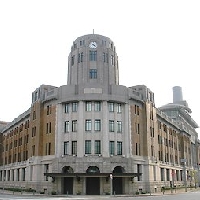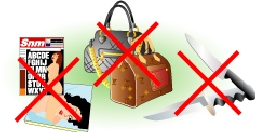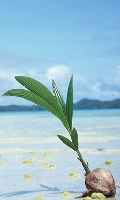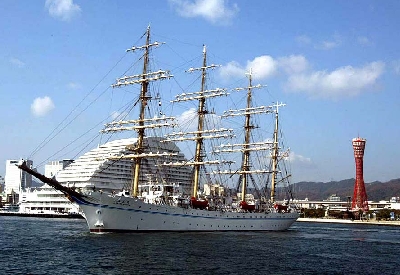** Documents required to clear your unaccompanied goods
- 1) Descriptive inventory (packing list) in English. Must be legible.
- 2) Passport copies of the declarant including photo page, information page, entry stamp (date of entry permit) and visa page(over one year). If the shipment is arriving from another country than the home country of the declarant, the visa from the country the shipment originates from is required.

- 3) Customs Form C-5360 “DECLARATION OF ACCOMPANIED PERSONAL EFFECTS AND UNACCOMPANIED ARTICLES”.
- This form must be completed prior to entering the country, it can also be completed at customs of arrival airport.
- This form is available from the flight attendants on board the aircraft bound for Japan or at the baggage area. When you have unaccompanied goods, two (2) forms “C-5360” are required. One form is for the customs officer and the other will be returned to you with the seal of certification. This form must then be handed over to the destination agent in order for them to clear the goods arriving later. This declaration is necessary to obtain duty / tax exemption status. Please note that this application can only be processed once & cannot be applied for after leaving the customs area. Failure to do so will result in delay when clearing the goods.
- 4) Keys to the locked suitcases or footlockers ( trunk ).
- 5) Delivery address and contact telephone numbers.
- 6) Employer (Work Company Name)
The household goods and personal effects can be imported duty free provided:
- 1) They consist of used household goods that have been in your use for at least one full year and will be for your continued use at the new residence. Clothes, toiletries and any other personal effects such as portable professional equipment, which will be used during your stay in Japan, are free of duties and / or taxes, as long as they are not intended for resale.
- 2) Your visa status must be valid for more than one year, and you must physically be present in Japan to clear customs.
- 3) Your shipment must arrive and cleared within six (6) months from your date of arrival in Japan (date Customs Form C5360 is declared).
The following items may be imported free of duty provided you are over 20 years of age. If you used up all the allowances for accompanied articles, the duty will be imposed on all liquor & tobacco products in the unaccompanied shipment. Large quantities require separate customs clearance, and will be treated as a commercial shipment.
|
Item |
Allowance |
Remarks |
|
|
Alcoholic Beverages |
3 bottles |
A bottle contains approximately 760ml |
|
|
Tobacco Products |
Cigars |
50 cigars |
If you bring in two or more types of tobacco, the amount of each will be tax-free up to the amount proportionally reduced by the duty-free allowance. |
|
Cigarettes |
200 cigarettes |
||
|
Heated Tobacco |
200 sticks |
||
|
Other kinds of tobacco |
250 grams |
||
|
Perfume |
2 ounces |
|
|
|
Others |
\ 200,000 |
The total overseas market value of
all articles other than the above items must be under\200,000. Any item whose overseas market value
is under \10,000 is free of duty and/or tax and is not included in the
calculation of the total overseas market value of all articles. There is no duty-free allowance for
articles having a market value of more than \200,000 each or each set. |
|
When your belongings exceed the limit of the allowances, the following customs duties will be imposed, in most cases, to that amount which is in excess.
|
Goods |
Rate |
|
|
Alcoholic
Beverages |
Whisky,
Brandy |
\407 per liter |
|
Gin,
Vodka, Rum, Tequila, etc |
\407per liter |
|
|
Liquor, Cordial |
\220 per liter |
|
|
Wine |
\88 per liter |
|
|
Beer |
242 per liter |
|
|
Rate
of Cigarettes |
\12.2 per cigarette |
|
There are several articles that you are NOT able to bring into Japan.
- 1 ) Opium, other narcotic drugs, utensils for opium smoking, stimulants and psychotropic substances ( excluding those designated by an ordinance of the Ministry of Health & Welfare ).
- 2 ) Firearms ( hand guns, rifles, machine guns, etc. ), ammunition for such articles and parts of.
- 3 ) Counterfeit, altered or imitation coins, paper money, bank notes or securities.
- 4 ) Books, drawings, carvings or any other article which harms public security or morals ( obscene or immoral materials such as pornography ).
- 5 ) Articles which infringe upon rights in patent, utility models, designs, trademarks, copyrights, neighboring rights, or layout designs of integrated circuit.
** If above items are included in the shipment, the customs will detain the whole shipment for further inspection at a separate bonded warehouse. The items will either be destroyed or shipped back to the country of origin. The costs incurred will be borne by you.
All shipments, both sea and air, are subject to Customs inspection. Common means of inspection are as follows:
|
A ) Random Inspection |
Spot checking of
packages chosen from the packing list by Customs Officer |
|
B ) X-Ray Inspection |
All packages
will go thru X-ray Scanner for screening |
|
C ) Physical Inspection |
All packages are
unloaded from container and opened for full inspection |
|
D ) Drug Detection Dog |
Sniffing of all
packages by a detection dog |
|
E ) Dust Particle Analysis |
Dust collected,
by small vacuum apparatus, from inside the packages are analyzed |
Type of inspection will be judged by Customs on the day of application for import clearance. Inspection will take place the next day.
|
SEA Shipment (LCL) * |
Approximately
5 – 10 working
days |
|
SEA Shipment (FCL) ** |
Approximately
4 – 7 working
days |
|
Air shipment |
Approximately
2 – 4 working
days |
●LCL (Less than Container Load)
●FCL (Full Container Load)
NOTE : The number of days are for reference only and will depend on readiness of documents required.
![]()
**Items
Certain items require special arrangements. They are divided into two categories:
【Plants&Animal】
Plants
 Any plants entering Japan need to be taken to the Plant Quarantine prior to customs inspection.
Any plants entering Japan need to be taken to the Plant Quarantine prior to customs inspection.
☆Additional information☆
Plant Protection Website in Japan:
 https://www.maff.go.jp/pps/j/information/
https://www.maff.go.jp/pps/j/information/
Animal
 Animal quarantine is a quarantine system that is implemented worldwide for the purpose of preventing the incursion of animal illnesses and diseases. Japan conducts both import and export inspections for cattle, pigs, goats, sheep, horses, chickens, ducks, turkeys, quail, geese, honey bees and other animals aswell as products and goods manufactured or derived from these animals.
Animal quarantine is a quarantine system that is implemented worldwide for the purpose of preventing the incursion of animal illnesses and diseases. Japan conducts both import and export inspections for cattle, pigs, goats, sheep, horses, chickens, ducks, turkeys, quail, geese, honey bees and other animals aswell as products and goods manufactured or derived from these animals.
Animal Products
In order to avoid spreading disease, Japanese Customs prohibit bringing meat products from certain countries into Japan. To import these products you will be required to have an inspection certificate even from the countries exempt. If the country of origin and the country issuing the certificate are different, you will be prohibited to bring the products into Japan.
☆Additional information☆
Animal Quarantine Service:
 https://www.maff.go.jp/aqs/languages/
https://www.maff.go.jp/aqs/languages/
Japan is located in East Asia and consists of four main islands; Hokkaido, Honshu, Shikoku, and Kyushu. The capital is Tokyo; centrally located in the main part of Japan.
Visitors come from all over the world to experience, our rich historical and cultural heritage in cities such as Kyoto and Nara, as well as our four distinct seasons with the most colorful being in spring with the Cherry Blossoms.
** Information
Capital city: Tokyo
Temperature : Highest 38℃ (Aug.) Lowest -3℃ (Jan.) in Tokyo
Currency: Japanese Yen (¥) (US$= ¥145~¥155 / 2025)
Population: more than 123,000,000 people (12th greatest number in the world)
Language: Japanese
Language character: Kanji / Hiragana / Katakana
Voltage: 100V / Plug type: A
Calling code: +81
Emergency call: 110 (Police) 119 (Ambulance)
Japanese Visa
For foreign visitors, a Visa is required to enter Japan.
There are 7 categories of visa:
Diplomatic visa, Official visa, Working visa, Temporary visitor’s visa, Transit visa, General visa, and Specified visa.
These are issued according to the purpose of your visit.
With Temporary visitor’s visa, Transit Visa, and General visa, you are not allowed to undertake any type of work in Japan. Depending on the content of your permit, you are also not allowed to work with the Specified Visa.
Visas are not required when applying for landing permission at a port of entry in Japan.
Nationals of 62 countries can apply for landing permission for short term stays for such purposes as sightseeing and business trips without obtaining a visa, they are as follows.
.
More information :  http://www.mofa.go.jp/j_info/visit/visa
http://www.mofa.go.jp/j_info/visit/visa

 BACK
BACK